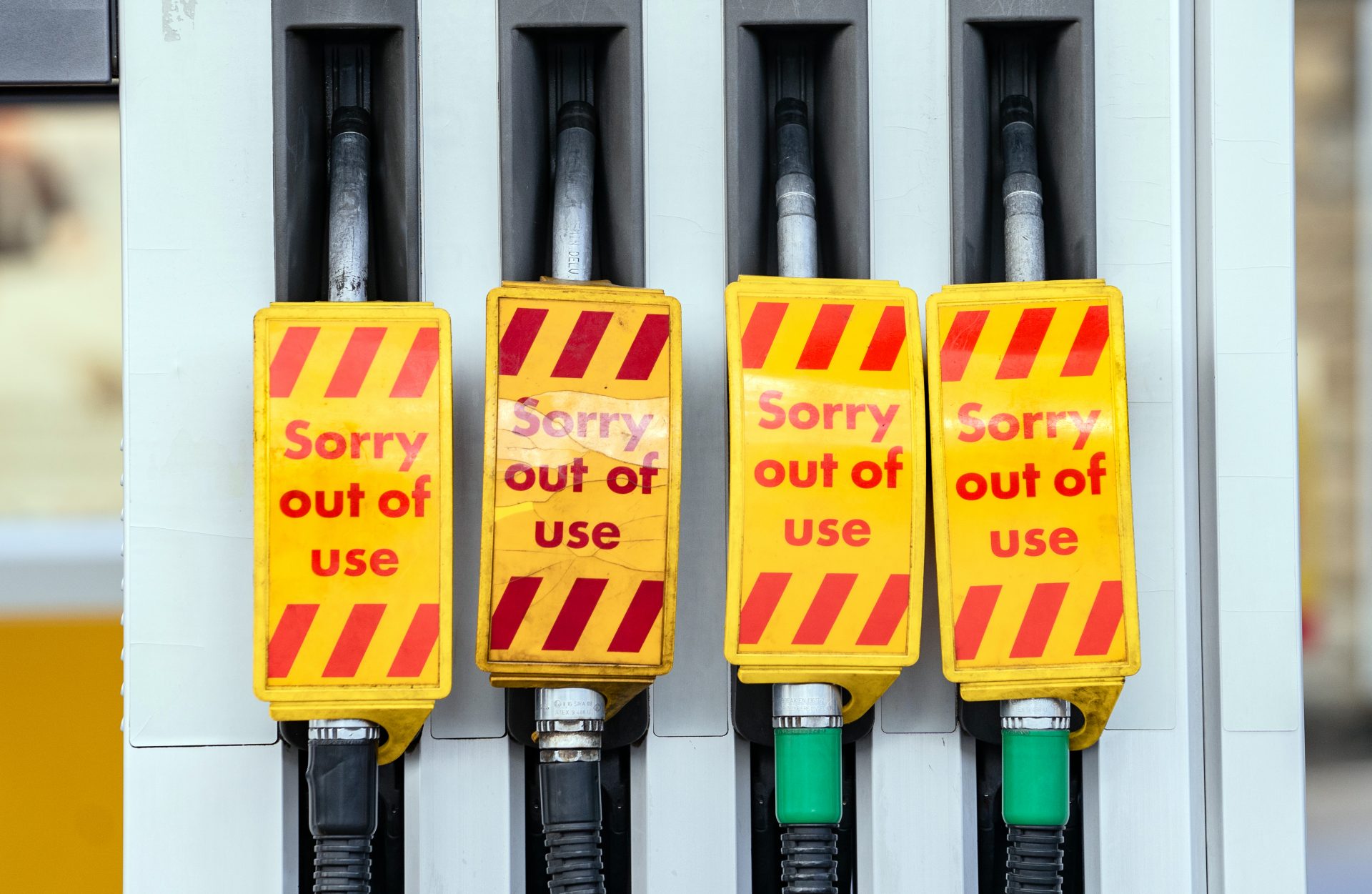Despite the chaos, frustration, and real harm that UK fuel distribution problems have been causing, some people are feeling quite smug.
A friend recently tweeted: “Three or four times a day I drive slowly past all the local petrol stations in my electric car.” And it’s not just electric car drivers who are gloating. Some cyclists too are enjoying the spectacle of car drivers fighting each other in queues rather than cutting them up at traffic lights or encroaching on the cycle lane.
Similarly, when Brexiteers complain about empty shelves, not being able to buy petrol, the rising prices, or the impending Christmas supply chaos, it’s difficult not to feel a twinge of pleasure – they asked for Brexit, and they got it. There’s a kind of justice about that.
We’ve borrowed a German word Schadenfreude (literally ‘damage-joy’) for this kind of pleasure in another’s suffering or misfortune. It’s not sadism, though some philosophers think it’s heading in that direction. Someone enjoying Schadenfreude isn’t responsible for the other person’s discomfort – you wouldn’t feel Schadenfreude if you’d let down your enemy’s tyres, for instance. But when bad things happen without our involvement to those we dislike, we relish the irony, the justice, the appropriateness of their comeuppance. ‘Ha! Serves them right!’ we think, and smile.
Friedrich Nietzsche recognised how much human beings enjoy cruelty. In The Genealogy of Morality he wrote “To see others suffering does one good” (and added that causing their suffering does us even more good). This ‘all-to-human’ principle, he thought, was universal and, somewhat perversely, he celebrated it. But you don’t have to go that far. There is undoubtedly a sense of relief that borders on joy that many of us feel when we’re not the ones suffering.
That’s what the Roman philosopher-poet Lucretius suggested in the line: “How sweet it is to watch from dry land a ship in danger of sinking because of stormy weather.” But Schadenfreude is more than just this sense that we’re OK and they are not, the pleasure in knowing we aren’t the ones in pain or danger. We only really feel Schadenfreude towards people who had it coming to them.
So, is it OK to enjoy Schadenfreude? It seems like a harmless pleasure. The Bible explicitly warns against it: “Rejoice not when thine enemy falleth, and let not thine heart be glad when he stumbleth” (Proverbs 24.17). But the Bible proscribes many things which are completely acceptable in modern life. The philosopher Arthur Schopenhauer, more influenced by Buddhism and Hinduism than by Christianity, despised Schadenfreude, labelling it “the worst trait in human nature” because it was so close to actual cruelty, the opposite of the compassion that he advocated.
I think Schopenhauer was a bit harsh here. It’s possible to relish the irony and justice of some bad things that happen to people we dislike without descending a slippery slope to out-and-out cruelty towards them.
Schadenfreude, after all, is an emotion that we feel when bad things happen to those people, not when we bring those things about.
That’s an important distinction, and a point at which we can dig our heels in and stop our descent on that alleged slippery slope to full-blown cruelty.
But there is still a danger here. This is best seen by drawing a distinction between Schadenfreude as a temporary feeling, and Schadenfreude as a disposition. A disposition is a tendency. Someone who is angry now because they’re stuck in a queue for petrol when they should be at work is in a temporary emotional state. Someone who is an angry person has a disposition to display anger in a wide range of circumstances. They just get angry in all sorts of situations.
Occasional states of Schadenfreude seem fine. And they’re compatible with compassion too.
It’s possible both to feel passing Schadenfreude on learning of an anti-vaxxer who ends up in hospital with Covid-19 and at the same time, or very soon afterwards, to have a strong wish that that person recovers quickly and without pain or any long-term consequences (apart from, perhaps, coming to realise the importance of vaccination in a pandemic). But the image of someone who is forever feeling Schadenfreude, someone with this as a fundamental disposition, a gleeful connoisseur of their enemies’ suffering, is far less attractive.
As the negative consequences of Brexit kick in for Brexiteers, it will be difficult to resist being that sort of person. But there is a world of difference between occasionally enjoying the aptness of another’s misfortune and living your whole life gloating about it.
Warning: Illegal string offset 'link_id' in /mnt/storage/stage/www/wp-includes/bookmark.php on line 357
Notice: Trying to get property 'link_id' of non-object in /mnt/storage/stage/www/wp-includes/bookmark.php on line 37








